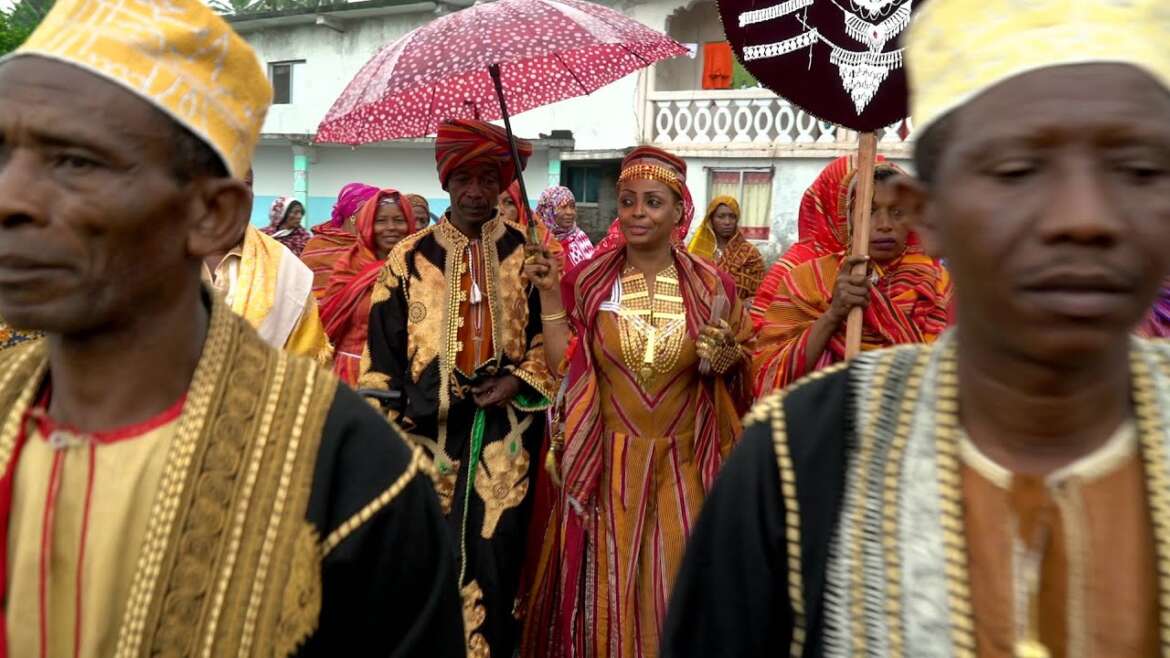GRAND MARIAGE IN COMOROS - A DECADE OF PREPARATION
The Grand Marriages usually takes place from the months of July-September, after the “small wedding” in about 10-20 YEARS or until the couple has saved enough money for this, a “Grand Marriage” must take place to obtain a social status. This is a week or two celebration usually occurs between the months of July-September, but preparations for the wedding take about a minimum of 6 months to 10 years. As per tradition, the Grand Mariage should cost more than the grand wedding of a relative or a friend that took place before yours and it could cost up to 20,000 euros. Comorans take pride in this Grand Mariage, they would save over time and spend it one lavish wedding.
If you marry outside this custom, you would not gain any respect from the people and the community even the President of the Republic. Comoran women want a grand marriage more than men, as it just not helps them acquire high social status, but they would gain a huge sum of fortune from the groom. Comoran ranks as #1 in countries that have influential women and women are highly respected and honored in their country.
In the first week, the bride prepares the groom’s attire for the grand marriage, if the groom has multiple wives every wife must prepare an outfit.
The renovation or furnishing of the house as if it’s a new house for both the bride and the groom. In regards to social status, this tradition weighs heavily on Comoran men, if they hold the grand wedding they would have the right to wear the traditional clothes, from the headpiece, robe, “Beye” and other items that he can’t wear unless he’s held a grand marriage.
The key element for Comoran woman’s grand marriage preparations is her beauty, the “Mesenzal” ritual will take place, this preparation could take a week to 6 months depending on their social status for the bride to shine and be as beautiful as the moon.
Djaliko Day is the end of the 1st week of the wedding preparation, the groom together with the village people visits the bride’s family first then the groom’s family, distribution of money for public projects is done the visitation to each other’s family and on the old times the couple will feed the village instead of handing out money or both.
Thursdays in the first week of this wedding festival are dedicated to women and Fridays for men. People from other tribes will start coming in, the men and women will dance and chant on the way to the bride’s house to congratulate her. The wedding will take place after the guests from other towns and tribes arrive, and relatives in other countries have called or sent their congratulatory messages. The wedding will take place, and everyone is invited, even tourists are welcome to witness.
After the wedding, the groom will move to the bride’s house instead of the bride moving into the groom’s house. The groom will be bringing his belongings and the clothes prepared by the bride on his arrival to the house. Village people and guests from other tribes will be dancing and chanting along the way, this marks the final stage of the wedding.






